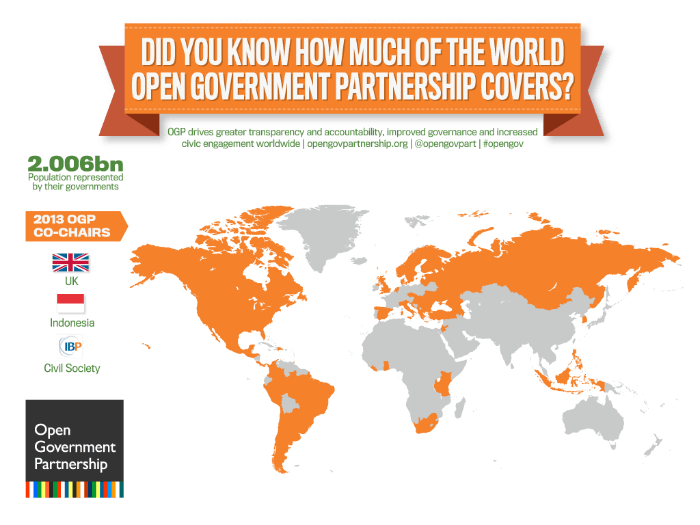A step forward – more countries present action plans at OGP Ministerial Steering Committee

This is an exciting week for the Open Government Partnership as more countries present their action plans to their international partners and representatives of civil society in a major step toward full participation. From their commitments we eagerly anticipate more action to establish transparency, civic participation, and accountability.
At the OGP Ministerial Steering Committee meeting in London this week, delegations from across the globe have come together to present their action plans to the Open Government Partnership Steering Committee. The new countries are Argentina, Costa Rica, Finland, Hungary, Panama, Trinidad and Tobago, Ghana, and Liberia.
Government and civil society representatives will discuss a new strategy for delivering the commitments in national action plans. They will also look at progress on measures to sharpen accountability, including discussion of countries’ action plan commitments. Over the coming months, these will be scrutinised by a high-powered International Expert Panel on which former Irish President Mary Robinson, Sudanese-born British entrepreneur Mo Ibrahim and Mozambican politician Graça Machel are senior advisers.
The OGP is encouraging the adoption of open data initiatives in participating countries. At a reception for the OGP today, Sir Tim Berners-Lee will launch the first in-depth study of how open dataBy opening up data and making it sharable and reusable, governments can enable informed debate, better decision making, and the development of innovative new services. Technical specifications: Polici... can be harnessed to foster better governance and provide better services in developing countries. He said:
“Open Data, accessed via a free and open web, has the potential to create a better world. However, best practice in London or New York is not best practice in Lima or Nairobi. The World Wide Web Foundation’s research will help to ensure that Open Data initiatives in the developing world will unlock real improvements in citizens’ day-to-day lives. It was at the OGP plenary in Brasilia last April that the ODDC project was born. It is fitting that, just 12 months on, we are here in London to launch our initiative at another milestone OGP event.”
Cabinet Office Minister Francis Maude, who will chair the meeting, said:
“In just 18 months, the OGP has grown into a global movement of 58 countries. Now we must cement the credibility of the OGP as an international force for change by deepening engagement with existing participants and turning promises into actions. “TransparencyAccording to OGP’s Articles of Governance, transparency occurs when “government-held information (including on activities and decisions) is open, comprehensive, timely, freely available to the pub... More is a tool for reformers all over the world. The best way to make the OGP transparency message stick and encourage more countries to join, is to show how openness empowers citizens and improves their lives; and to make ourselves accountable if we fail to live up to our promises. Once people see the advantages of transparency, the democratic impetus for open government will be irresistible, and there will be no turning back.”
We all want more transparent, effective and accountable governments — with institutions that empower citizens and are responsive to their aspirations. What do you think is the next step for the OGP? We would love to hear your thoughts and ideas, you can tweet us @opengovpart or engage with us on Facebook and Google+.
Or you could contribute to the OGP blog by submitting a guest blog post!
